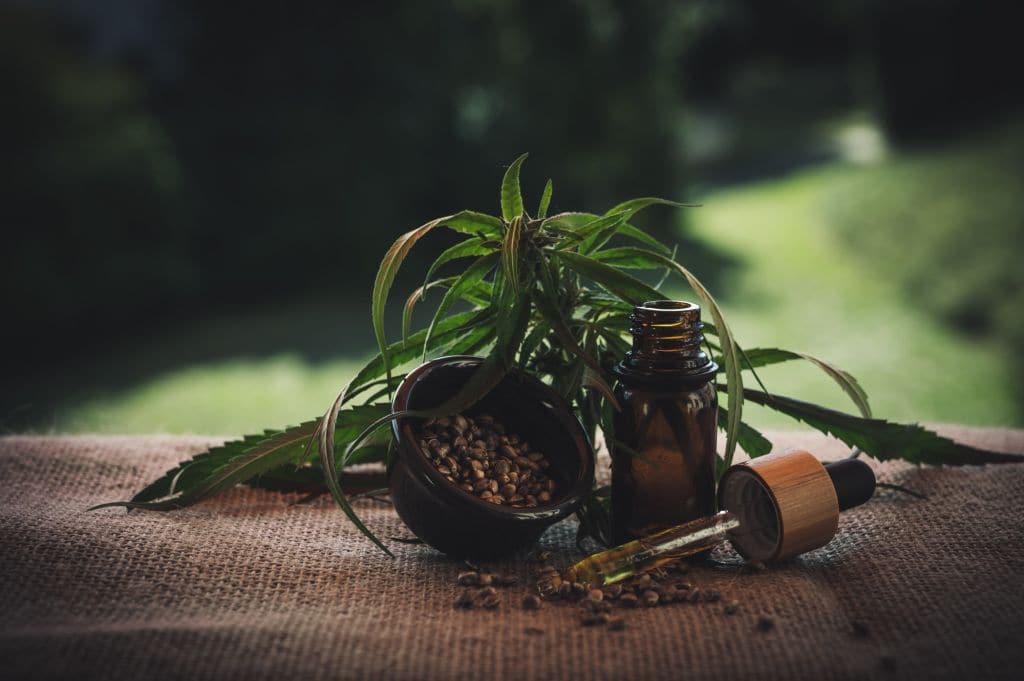
Globally, two to three million people develop non-melanoma skin cancers each year. Another 132,000 people fall victim to melanoma skin cancers.
In the United States. alone, over a million Americans live with melanoma. And this 2019, experts estimate that there will be 192,310 new cases of this cancer.
All this makes skin cancer the most common type of cancer in the US.
But there’s still some good news: Skin cancer is treatable, even curable. Today, there are eight standard treatments, but scientists continue to research new ones.
CBD oil for skin cancer is one such promising treatment. And according to researchers, this plant-based oil appears to have treatment potential.
The question is, what exactly is CBD oil and how can it help skin cancer patients? What does science even have to say about it?
We’ll address all these questions in this post, so be sure to read until the end!
What is CBD?
CBD, or cannabidiol, is only one of the 420 known constituents of the cannabis plant. It’s one of the cannabinoids found in cannabis, which are molecules unique to the plant. Cannabinoids, as chemical molecules, interact with the endocannabinoid system (ECS) of mammals.
CBD appears to affect the ECS by acting upon its cannabinoid receptors. There are two receptors known at the moment: CB1R and CB2R.
A huge percentage of CB1 receptors are in the central nervous system. CB2 receptors, on the other hand, appear to be dominant in the peripheral nervous system.
Both, however, act as “messengers” of the ECS, the main function of which is to keep homeostasis in the body. Homeostasis is the process that keeps your body’s internal state in balance. The ECS does this by regulating physiological processes, such as stress and pain.
Moreover, ECS plays a role in hunger, sleep, mood, and memory. It also affects various immune and reproductive system functions.
Scientists are still studying how exactly CBD affects the ECS and the CB receptors. However, some studies found that CBD seems to bind with ECS receptors. In doing so, it either boosts or restricts some of the functions of the receptors.
What Then is CBD Oil?
CBD oil is exactly what it sounds like — CBD extracted from the cannabis plant diluted in a carrier oil. Some products use hemp seed oil, while others use coconut, sunflower, and avocado oil.
Mixing the CBD extract in a carrier oil increases the cannabinoid’s bioavailability. It makes it easier for the body to absorb and break down cannabidiol. This then helps increase CBD’s rate of efficacy.
What Science Has to Say About CBD Oil for Skin Cancer
Most people use CBD oil to help ease the symptoms of chronic pain and arthritic inflammation. It also appears to have beneficial effects on nerve pain and fibromyalgia. Studies have also found it to help control epileptic seizures.
So, what about CBD for skin cancer? Let’s take a look at some of its current uses.
Relief from Cancer Pain
A study found that CBD reduced cancer-related pain in patients. What’s more, this occurred in patients whose pain medication didn’t work.
That said, pain reduction is one of the possible uses of cannabis oil for skin cancer. In melanoma patients, for instance, painful, itchy, or burning lesions are common symptoms. CBD oil may help ease these symptoms through its pain-relieving, anti-inflammatory effects.
In fact, CBD is currently touted for its skin benefits, such as its sebum decreasing effects. Sebum, in high amounts, may increase one’s risks for developing acne. Also, scientists are looking into cannabidiol’s anti-inflammatory effects to help reduce acne.
Ease Symptoms Associated with Chemotherapy
Chemotherapy is a common skin cancer treatment that uses potent chemicals. These chemicals especially kill fast-growing and -spreading cancer cells.
While chemotherapy is effective in treating skin cancer, it comes with a lot of side effects. Nausea and vomiting are among the most common of these adverse effects.
The good news is, studies found cannabis-based medicine to alleviate these side effects. These drugs include CBD, mixed with THC, which is another type of cannabinoid. Scientists also found that these cannabinoids can prevent both chemo-induced nausea and vomiting.
As such, CBD oil may be a helpful complementary medicine to chemotherapy. It may help patients cope better with their main, but more aggressive treatment. Here’s a page where you can learn more about how CBD can be a complementary therapy for cancer treatment.
CBD’s Anti-Tumor Effects
Studies have discovered that CBD is an anti-tumor agent. This is one of the reasons scientists are looking into the link between CBD oil and skin cancer. After all, some types of tumors can be malignant cancerous growths.
Keratoacanthomas, for instance, are tumors associated with squamous cell carcinoma. Although most of these shrink or disappear on their own, some of them may continue to grow. From there, they can spread to and affect other areas of the body.
Studies also found cannabinoids, including CBD, to have anti-skin cancer effects. It appears that these cannabis constituents can kill targeted tumors. Aside from skin cancer, they may also help treat lung, uterine, and prostate carcinoma.
Researchers are also looking into CBD’s anti-cancer effects for lymphoma and glioma. Other studies focus on CBD for breast cancer and pancreatic cancer.
CBD Oil May Be a Helpful Addition to Skin Cancer Treatment
There’s no doubt that the use of CBD oil for skin cancer needs further testing. However, early findings show its potential as a natural alternative for cancer-induced pain. Moreover, it has already proven its effectiveness in managing chemotherapy side effects.
These should be enough reason to give CBD oil a try, even if not as a main skin cancer treatment. Besides, CBD oil is a powerful antioxidant — more potent than vitamin C — and there’s no risk of overdosing on it. With or without skin cancer, CBD oil can already help improve your health.
Ready for more life pro tips to get your health back on track? Then be sure to follow and bookmark our site’s Lifestyle and Health sections!








